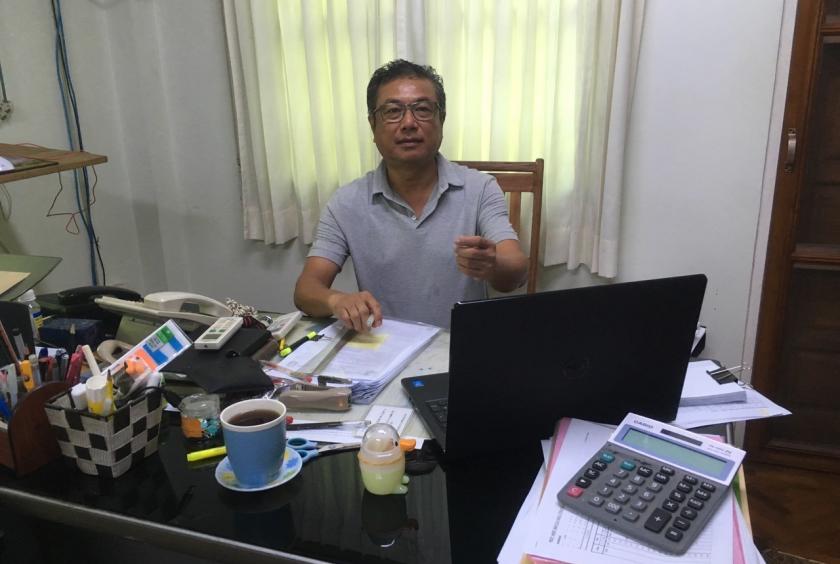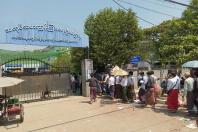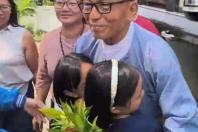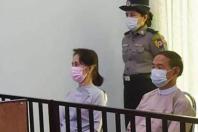
A London-based campaign group which achieved international headlines by alleging massive corruption in Myanmar’s timber industry now stands accused of getting its facts wrong. The Environmental Investigation Agency (EIA) claimed in its report State of Corruption: the top-level conspiracy behind the global trade in Myanmar’s stolen teak that the legal trade in timber authorised by the Government’s Myanmar Timber Enterprise (MTE) is “as corrupt and illegal as any blatantly smuggled across the border into China.”
Myanmar judged incapable
Calling for intervention and the abolition of the Myanmar Timber Enterprise to be replaced with a new multi-stakeholder system “to continue preparing Myanmar for possible Forest Law Enforcement Governance and Trade discussions with the European Union,” it concluded that “Myanmar cannot reform this multi-layered, complex but highly organised international timber trade by itself.” The Report achieved considerable publicity, encouraging the international view that the Myanmar Government cannot run its own country’s affairs. The EIA – whose funders include the aid agencies of the Norwegian and UK governments – has also used the report as part of its money-raising appeal for more donations. But the wide-ranging allegations in the Report have come under scrutiny.
Doubts about EIA’s “facts” Speaking at a press conference in Nay Pyi Taw, U Aye Kyaw, General Manager of Marketing at the Ministry of Natural Resources and Environmental Conservation, questioned the EIA’s claim that in May 2018 sawmills administered by Myanmar Timber Enterprise in Yangon illegally exported between 100,000 to 200,000 tons of teak to Europe.“We have checked the stock balance of that company, actually they have a balance of 5,500 tons of teaks logs only, these logs were sold and paid for correctly, as clarified by U Khin Maung Kyi,” from MTE, said U Aye Kyaw “Some trading companies come to see teak logs for export at MTE sawmills under the Nawali system.In order to export 20,000 tons of sawn teak, they would have had to plank about 40,000 tons of logs. No such amount remains in stock today.” He added, “it’s impossible.”
Nor was this the only controversial claim. Faith Doherty, Forests Campaigns Leader for theEIA, asserted that “The bottom line is that Myanmar’s teak trade is effectively a criminal enterprise and all teak exports to Europe are unable to comply with the European Union Timber Regulation.” But according to competent authorities in the European Union, like those in Sweden, Myanmar teak can be imported legally if it is supported by the appropriate due diligence and certification. The EIA’s claims that Myanmar is incapable of administering a viable certification system, ignores the progress it has made in working with the Programme for the Environment of Forest Certification(PEFC). PEFC has backed the Sustainable Forest Management Project and the Myanmar Forest Certification Committee (MFCC) a body of multiple stakeholder experts from international and local government, environmental NGOs and industry associations. Starting from its establishment as far back as 2013, MFCChas helped established a clear Chain of Custody and Due Diligence to ensure that Myanmar forest produce can be traced to certified forests, engaged in sustainable practices.
The EIA makes no mention of these safeguards. As a government body, MTE is the sole authorised supplier of logs in Myanmar. One of the companies involved in advising on compliance issues is Singapore-based Double Helix. In a recent statement to stakeholders seen by the Eleven, Double Helix’s CEO, Darren Thomas stated that the EIA report’s claim that it is impossible to verify origin and legality of harvest“is incorrect. Through our own experience, it is possible to verify claims of forest of origin, sometimes even to compartment level, based on documentation that is held by MTE. Thanks to recent international engagement, such information is becoming increasingly accessible, even for prior years’ harvest.’ He added that “the trend is clearly moving towards greater openness as MTE adapts to greater levels of scrutiny.” One of the timber importers that the EIA claimed was illegally importing Myanmar teak into Europe is the long-established German firm, Alfred Neumann. The EIA claimed that it had imported “a few thousand tonnes of teak logs” in 2013. Alfred Neumann has issued a statement that they actually imported a “total of 220 tons of teak round logs in 2013, so not even 10% of the amount claimed in the report. The EIA could have found out very easily as we have to declare exact import numbers to the state of Germany.” The timber was not illegally traded through China, as the EIA claimed, but legally shipped from the Port of Yangon.
“Accusing us to be in possession of material from China is not only simply a lie, it also does harm to our reputation” maintained the German company.
The wrong man?
Along with these wild claims, the EIA Report’s allegation that has made the most headlines concerns a well-respected timber trader, Cheng Pui Chee. Mr Cheng, who as a Thai citizen was known in his adopted country as Mr Chetta Apipatana, and who died in 2018, is depicted as a “kingpin” and a “shadow president” who used a “web of connections” to corruptly benefit from the“systematic under-declaration of the grades of teak logs.”In doing this, the Report asserts that Cheng “illegitimately accumulated huge volumes of the world’s best teak at knock-down prices, giving him market dominance.” To those who knew Mr Cheng well, the allegations have come as a shock. Han Zaw Lin, who worked with him for almost thirty years, is outraged that the boss he knew as a mentor and kindly man is now having his reputation attacked when he is no longer alive to defend himself. Indeed, Mr Han Zaw Lin recalls a man very different to how the EIA’s reporters– who never met him - depict him, “Mr Cheng taught me not only about work and business but also how to stay in life” Han insists.
“I even couldn’t find the words to describe his kindness and to express how much he was a great influence for my life.” In its zeal to destroy Mr Cheng’s hard-earned reputation, the EIA appears not to have done the most elementary fact-checking. The EIA Report states that “two key cronies of the Than Shwe regime” Tay Zar of the Htoo Group and his “fixer’ Lu Lu“both had minority stakes in Cheung Hing Corporation and Cheung Hing Timber Corporation” which Mr Cheng owned. From this the EIA concludes “Cheng had clearly positioned himself just one step removed from Senior General Than Shwe.”It’s perfect for trying to explain Cheng as a man of influence. But Han Zaw Lin dismisses the assertions as nonsense, responding,“I strongly say that U Tay Zar and U Lu Luwere totally not concerned with our company and were not shareholders” and that Senior General Than Shwe, I can say that neither Mr. Cheng or myself have ever met or seen him during our lives.” “Our company had worked in Myanmar over 42 years in the timber business and we guarantee that we still have no bad image at all as Mr Cheng always kept on maintaining the good Image for his company. He never did one piece of illegal business.”
To Han Zaw Lin, the EIA’s allegations that Cheng could have massively benefited from the under-grading of high quality teak logs is not only wrong, it is“impossible.” He explains that parcels of logs can only be purchased after they have first been inspected in the log yard by MTE officials who issue a grading summary for each log to the MTE’s Planning Department for Marketing & Milling. “The Planning Department informs the Inspection Department to make a Counter Check. Officers and staff from the Inspection Department go to the log yard and recheck that those gradings are correct or not for every log. After rechecking, they approve and revert to the Planning Department.Officers from Planning Department then make a final check. The approved grading is then approved, photographed and recorded by Inspection Department and Officers from Log Yard.” Given this multiple levels of checking by different officers, “I can strongly say that Mr Cheng never made grading fraud,” Han Zaw Lin testifies, adding, “EIA is free to check with the concerned MTE department by mentioning exact logs which they accused of grading fraud, MTE should have clear records and photographs for all log parcels.” This multi-level checking procedure would certainly make it difficult to carry out years of systematic grading fraud. Yet, the EIA claims that this is how Mr Cheng became what they nickname,“the King of Burma Teak”.
Surprisingly despite the many people who would have known someone with this level of influence, the EIA Report only cites one source for the picture it paints of him– a retired Taiwanese sawmill manager named Zheng Kun Fu (A-Fu). But there is a problem. Mr Zheng denies that he was referring to Mr Cheng when he mentioned rumours of past corruption decades ago. Zheng says his words were“bent, manipulated and edited” by the EIA to make it appear he was talking about Mr Cheng when he was not. Referring to the EIA investigators, Zheng, “it was them” who inserted the name of Mr Cheng.Zheng added that far from Cheng being a “Kingpin” and the “the King of Burma Teak,” in reality “Cheng was really not that important.” Counter-productive? Questions are now being asked about the quality of the EIA’s fact-checking and whether decades-old allegations (which may actually have been levelled at the wrong man) are relevant to the current work of the MTE and the MFCC to enforce proper certification and long-term sustainable forestry practices. “Why is the EIA digging up the past when the current government is moving in the right direction focussing on forest conservation?” said a well-placed Myanmar timber analyst quoted inTropical Timber Market Report,“Myanmar is striving as best it can for forest conservation and also for a legal supply chain.”Teak logs which are traceable and legally purchased from the government is completely different to logs that are smuggled over the border, which are clearly illegally. Indeed, the EIA’s attention-seeking Report “could have a negative impact of the current process of establishing a mechanism that verifies the legality of Myanmar wood products.”
The Interview with Eleven Media
As stated in the EIA report of “ STATE OF CORRUPTION” about the management of Myanma Timber Enterprise, it is mentioned the position of Thai Sawat Import Export Company Ltd and Cheung Hing Timber Company Ltd, the Operation Manager U Han Zaw Lin clarified the truth as follows to the accusations through Eleven Media’s interview.
Q. First of all, please give us a brief background of who you are, the organization you belong to and also a summary of the topic in question that is that report from Environmental Investigation Agency (EIA) titled “State of Corruption: The top-level conspiracy behind the global trade in Myanmar’s stolen teak”.
A. I am Han Zaw Lin. I am 53 years old and joined Mr Cheng Pui Chee’s company, Thai Sawat, twenty-nine years ago in 1990.I am now Operations Manager of Thai Sawat Import Export Company and Cheung Hing Timber Company. I oversee saw mill and shipping activities. I live and work in Yangon.
The EIA Report claims that Myanmar is not capable of running its own timber industry and that international bodies need to have more power over it. Their Report says that this is needed because of corruption – and they claim that Thai Sawat when led by Mr Cheng acquired high quality teak that was fraudulently graded as low quality. Furthermore, the report claims that Tay Za of the Htoo Group was a major shareholder in Mr Cheng’s company and that he provided access to senior military officials and politicians. None of these claims are true.
I know because I worked very closely with Mr Cheng for many years that doing business with high ethics was his way. That is why we never had a bad image until the EIA got its facts wrong and made these terrible accusation. Mr Cheng died last year– so I must speak up for him and defend his honourable life that the EIA is trying to smear. He was always determined on maintaining the good Image for his company. He never did even one piece of illegal business.
Q. There are many points of contention and complaints in regards to the so-called information provided in this report including information that directly conflicts data from the government and other organizations that are working in the global logging industry. Can you please elaborate on those points as someone that have much experience in the global timber trade?
A. The EIA’s allegations that Mr Cheng could have massively benefited from the under-grading of high quality teak logs is not only wrong in fact, it would be impossible if attempted on this big scale.
Parcels of logs can only be purchased after they have first been inspected in the log yard by MTE government officials who issue a grading summary for each log to the MTE’s Planning Department for Marketing & Milling. The Planning Department informs the Inspection Department to make a counter check. Officers and staff from the Inspection Department go to the log yard and recheck that those gradings are correct or not for every log. After rechecking, they approve and revert to the Planning Department. Officers from Planning Department then make a final check. The approved grading is then approved, photographed and recorded by Inspection Department and Officers from Log Yard.
With so many levels of checking by different officers, I can strongly say that Mr Cheng never made grading fraud. The EIA is free to check with the concerned MTE department by mentioning exact logs which they accused of grading fraud, MTE should have clear records and photographs for all log parcels.
This is not the only allegation that the EIA has not researched properly. The EIA Report states that Tay Za of the Htoo Group and a business associate Lu Lu had minority stakes in Mr Cheng’s companies, Cheung Hing Corporation and Cheung Hing Timber Company and the Report claims that in being the business partner of Tay Za this would have allowed Mr Cheng to get close to Senior General Than Shwe. I strongly say that Tay Za and Lu Lu were totally not concerned with Mr Cheng’s companies and were not shareholders in them.This the EIA could have easily verified, but did not do so. As for, Senior General Than Shwe, I never met him in my life. The allegations are nonsense.
Q. Can you please tell all of us about the late Mr.Cheng Pui Chee, also known by his Thai name Mr. Chetta Apipatana – and the widespread accusations that have been levelled against him and Thai Sawat?
A. Mr Cheng loved his work, often working late, long after office hours and I would stay behind to work with him. He cared very deeply about timber and the forests of Myanmar. What I would like to make crystal clear about Mr Cheng is that he is very kind hearted person. Mr Cheng taught me not only about work and business but also how to stay in life. And I nominated him as my godfather. Mr Cheng was always very supportive of me and encouraged me to learn Thai and English, even renting an English teacher. He taught me about the timber industry, log inspection, shipping, good customer relations, but even the right table manners, and about religions and customs, cultures, histories, the importance of business ethics. He taught me very patiently and step by step. He is not only my boss but also my teacher to me. I couldn't even find the words to describe his kindness and to express how much he has inspired me for my life.
Q. Such a big and wide reaching organizations like the EIA had made those very questionable claims based on what can only be said as truly unreliable evidence, with one instance being their source having openly admitting that his words have been “taken out of context”.What kind of things must be done so that the EIA take responsibility for their wrongs and possible implications and ulterior motives that such an organization has for their report?
A. Yes, I am not surprised to hear that the source the EIA quoted to support their attempt to destroy Mr Cheng’s reputation says his words were taken out of context. The EIA tried to trick me to say bad things too. When they met me in October 2018 they lied about who they were. They were from EIA but they pretended they were Chinese timber traders who wanted to buy a lot of timber for a big project in Montenegro.They didn’t mention accurately the conversation with me in their report. For example, they didn’t mention that I made clear we operated in Myanmar only through official MTE sawmills legally and that we only cut legal logs only as well. But they didn’t mention that at all – because it did not suit their agenda.
I would say to the EIA that if they are going to try to destroy the reputation of a well-loved man like Mr Cheng, then they need to get their facts right. But they just wanted to find a name they could make allegations against. Preferably a name they had never met. And they waited until he was dead so that he could not answer back. They mislead not only through printing false information but also by not publishing the information that contradicts their claims.
Their purpose is really to say that Myanmar cannot run its own business. They want Myanmar's Timber trade to be directed by international bodies like themselves. That is their real motive. But with all their mistakes they show it is they who do not understand the measures Myanmar has put in place to ensure the timber trade is carried out legally and ethically and that it is done sustainably too. The EIA could end up damaging the legitimate timber trade in Myanmar, and set back progress here. How much more counter-productive could their interference be?









